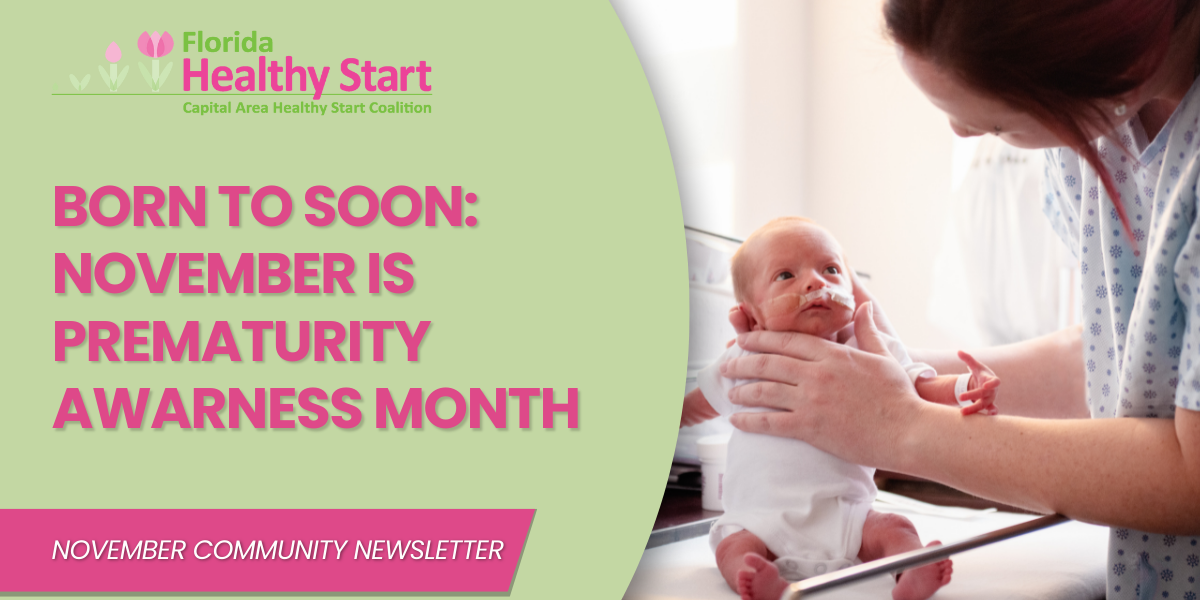Every November, we recognize National Prematurity Awareness Month to raise awareness about the nearly 400,000 premature babies born in the U.S. each year. We also observe this month to find ways to reduce this alarming number.
A premature or preterm baby is one who is born too early, before 37 weeks of pregnancy. Although giving birth a few weeks early may not seem like a bad thing, preterm birth is the second leading cause of infant death (before 1 year of age). This is because babies miss out on important stages of growth and development that happen in the final weeks of pregnancy. In fact, the baby’s brain, lungs, and liver need the final weeks of pregnancy to fully develop.
1 of every 10 babies in the United States are born too early — but thankfully, most babies survive. However, the babies who survive may have short-term and long-term health complications, like developmental delays, impaired learning, breathing problems, feeding difficulties, cerebral palsy, and hearing problems.
We do not know all the causes of preterm birth. Even a woman who seems to do everything “right” can still birth a baby too soon. However, we do know the factors that increase the risk of premature birth including access to quality healthcare, substance use, smoking, stress, depression, and the mother’s age or race.
Even though we don’t know every cause, there are still some things that can be done to reduce the number of preterm babies born. The CDC recommends that women who are pregnant should quit smoking, avoid alcohol and drugs, get early and regular prenatal care, and seek medical attention for any warning signs or symptoms of preterm labor. So, parents — please know the facts and learn the important steps you can take to decrease your risk for premature birth.
Please Go to Page 3 to See the Signs & Symptoms of Premature Birth!







